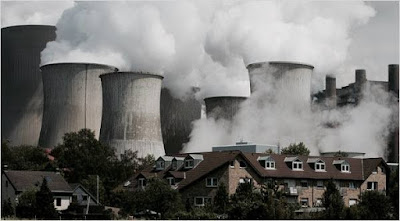Recycling: How Are We Doing As A Global Community?
Individuals and governments the world over are beginning to understand that if we don’t act now, as a global community, the environment is in grave peril. One major step many communities of the world have taken is educating about and enforcing recycling standards. As a result of increased wealth and population, extreme consumerism, and lifestyle changes, have led to increased waste. Recycling reduces toxins released into the atmosphere from landfills and reduces the pollution generated in manufacturing more (fully recyclable) packaging of products.
Which countries recycle the most?
The top six countries for recycling are Germany, South Korea, Slovenia, Austria, Belgium and Switzerland. Germany gained number one status (although technically, it is virtually tied with Austria) by implementing what is called the green dot initiative. (We give Germany the edge in global ranking for recycling, due to the fact that Germany came up with the Green Dot system). In order to get a green dot on the package, manufacturers have to pay a fee based on the size of the packaging, which is used for recycling. Manufacturers have thereby been encouraged to reduce the volume of packaging, and to make packaging more easily recyclable. This encourages companies to produce more minimalistic and innovative packaging. They also came up with an intricate system of domestic and commercial sorting to make sure every material is able to be recycled properly. The Green Dot system started in Germany in 1991, and now has spread to 26 countries on the European continent.
Who Recycles the Worst?
The worst countries worldwide for recycling are Turkey and Chile. Turkey recycles a mere 1% of its total waste. The government places little to no importance on the recycling issue. Chile is known for having bad infrastructure for waste management, and so a lot of illegal dumping occurs.
How Can We Improve Recycling Rates?
In order to improve recycling rates, it is important to make recycling receptacles ubiquitously available. This means both installing public receptacles, and providing recycling services free of charge to residential areas. Most people will choose to recycle when it presents no apparent added effort.
In order to improve recycling rates, it is important to make recycling receptacles ubiquitously available. This means both installing public receptacles, and providing recycling services free of charge to residential areas. Most people will choose to recycle when it presents no apparent added effort.
When people have to think too hard about which item goes in which bin, they tend to give up and either throw it in a random bin, or just throw it in the trash. Unless zero-sort recycling infrastructure is already in place, incorrectly recycled items create increased cost in the recycling process. In fact, zero-sort facilities are a great way to avoid the apparent added effort of having to think. Most people know that, in general, glass, paper, and plastic are recyclable, and everything else is landfill material. With zero-sort receptacles, there is no added thought required.
Creating a penalty for not recycling is also a tool that can be implemented for increased community recycling. It actually costs you to not recycle, and throw out your trash is a special plastic bag, in Switzerland. In Denmark, trash disposal is closely monitored and regulated in order to ensure the maximal recycling is done correctly.Germany issues each household 5 different colors/ categories of recycling bins. Cities where you can be fined if you don't recycle, include Burlington, VT, Dayton, OH, San Francisco, CA and Cardiff, Wales.
Most importantly, city officials need to evaluate the needs of their city. If it is particularly windy, they may need to provide covered bins for residence; if there is constant illegal dumping, they may need to provide more accessible recycling and trash centers. The needs of each community vary so widely that it is impossible to prescribe one generic solution. The important take away is that we all need to be doing something as a global community, to increase environmental welfare.




